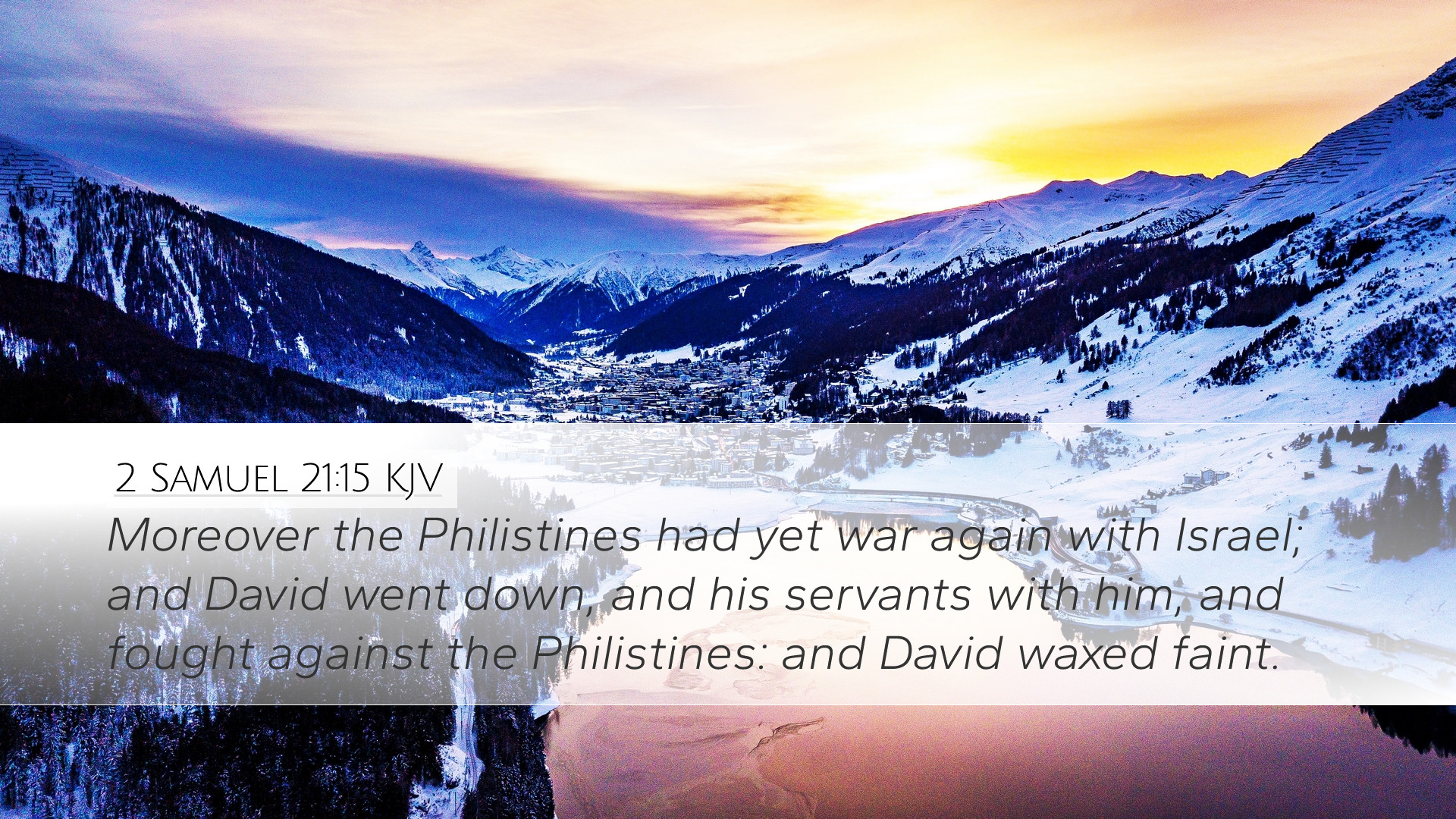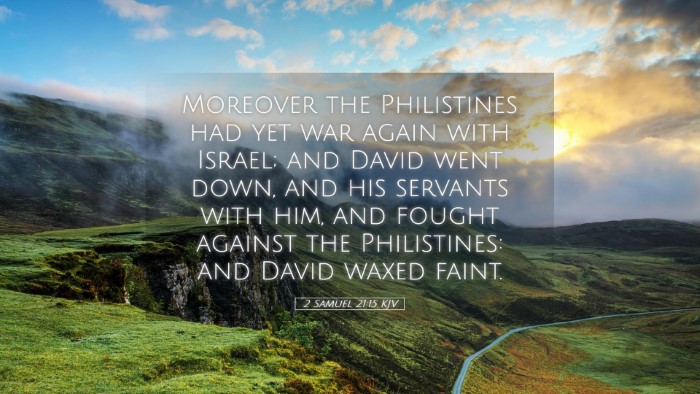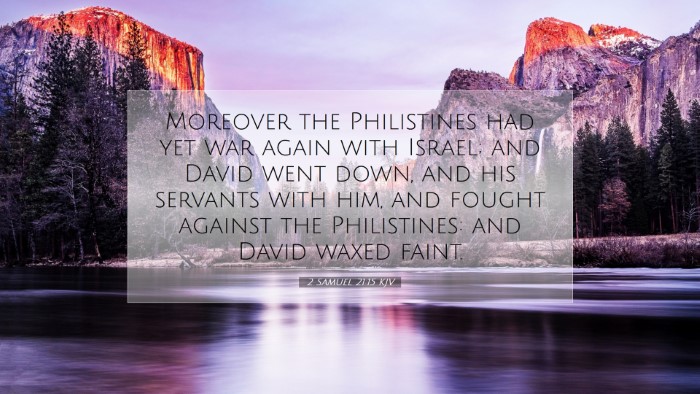Commentary on 2 Samuel 21:15
Verse Analysis:
2 Samuel 21:15 states: "The Philistines were at war again with Israel. And David went down and his servants with him, and they fought against the Philistines." This verse marks the continuation of a long-standing conflict between Israel and the Philistines and illuminates various themes including leadership, warfare, and the divine assistance in battle.
Contextual Background
The historical backdrop of this verse occurs during the reign of King David, following the period of great victories and challenges that Israel faced. David, known as a warrior king, plays a central role in shepherding Israel through these tumultuous times. Within this broader context of warfare, 2 Samuel 21 provides an account of several battles and the ongoing strife between David’s kingdom and the Philistines.
The Nature of Conflict
The recurrent nature of the conflict highlights the persistent threat that the Philistines posed to Israel. This episode is a reminder of the ongoing battles that believers face, both in a spiritual and physical sense. The Philistine incursions symbolize the challenges that arise against God’s people, provoking both moral and existential questions about faith, strength, and divine support.
Matthew Henry's Reflection:
According to Matthew Henry, the battles with the Philistines illustrate the constant struggle of God’s people against their adversaries. He emphasizes that such conflicts require not only physical strength but also reliance on God’s promises.
David's Leadership
David represents a model of courageous leadership in this verse. At a time when he might have been expected to step back due to age and previous experiences, he actively engages in the battle against the Philistines. This demonstrates his unwavering commitment to his people and his role as a protector.
Adam Clarke's Insights:
Adam Clarke posits that David’s readiness to go forth into battle signifies his strength of character and dedication to his kingship. Despite any potential risk, he embodies the qualities of a leader willing to face adversities head-on for the sake of his people and his covenant with God.
Theological Implications
This verse invites theological reflection on the nature of God’s aid in times of trouble. It suggests a dynamic relationship between divine support and human action. As David engages in battle, it affirms the belief that God is with His people in their struggles, empowering them to confront their enemies.
Albert Barnes' Perspective:
Albert Barnes emphasizes the need for faith in God during trials. He notes that while David fought valiantly, the victory or defeat in battles remains ultimately in God’s hands. Thus, human effort is important, but it is God who determines the outcome.
Lessons for Today
For pastors, students, theologians, and Bible scholars, this verse raises important themes relevant to contemporary Christian life:
- Faith in Action: The necessity of stepping out in faith, even amidst uncertainty, much like David.
- Divine Assistance: The recognition that while our efforts are significant, it is ultimately God’s power that grants victory.
- Leadership Responsibilities: The accountability that comes with leadership and the moral imperative to protect and guide those under one’s care.
- Historical Context: Understanding the historical and cultural context surrounding warfare in the biblical narrative enhances our interpretation.
Conclusion
In conclusion, 2 Samuel 21:15 encapsulates the essence of battle as experienced within the community of believers. It challenges contemporary Christians to confront their struggles with faith and resolve, while also relying on divine guidance. The reflections from Matthew Henry, Adam Clarke, and Albert Barnes collectively enrich the understanding of this passage, presenting various facets of leadership, conflict, and the faithful reliance on God in all circumstances.


